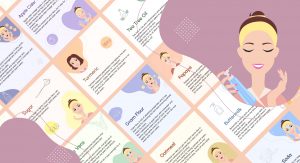This bundle includes 20 high quality images with unique and relevant texts. Download these ready made content for your social promotions.
Insomnia is a symptom, not a medical condition. It refers to being concerned about how much or how well you sleep. This may be caused by difficulties in either falling or staying asleep. Self-reported sleeping problems, dissatisfaction with sleep quality causing daytime tiredness are the only defining characteristics of insomnia. The concept of “a good night’s sleep” varies greatly from person to person, that’s why what one person considers insomnia may be considered a decent sleep by another. Over time, lack of sleep can lead to health problems like diabetes, hypertension and weight gain.

Wake up at the same time each day. It may be tempting to sleep in on weekends, especially if you’ve had a bad week’s sleep. If you have insomnia, however, you should get up at the same time every day to educate your body to get up at the same time.

Eliminate caffeine from your diet. The effects of caffeine can last for several hours, so the chances of it disrupting your sleep are significant. Caffeine may not only cause difficulty initiating sleep, but may also be a cause of frequent awakenings.

Minimize Alcohol Consumption. Alcohol may have a calming effect for the first few hours after consumption, but it can then lead to frequent arousals and a restless night’s sleep.

Avoid Sleeping Pills. After a period of using sleeping pills you develop daytime sleepiness and falling asleep without them tends to become even harder. These medications should only be used as a temporary last resort and under strict medical supervision.

Limit naps. Napping appears to be a good strategy to catch up on missed sleep, but it may affect the quality of your nighttime sleep. It is important to establish and maintain a regular sleep pattern and train yourself to associate sleep with signs like darkness and a consistent bedtime.

Exercise regularly. Regular exercise can improve sleep quality and duration. Exercising immediately before bedtime, however, may have a stimulant effect on the body. Try to finish exercising at least three hours before you plan to go to bed.

Limit activities in bed. If you suffer from insomnia, avoid reading, checking your phone, watching TV or listening to music while in bed. All these activities can increase alertness and make falling asleep difficult.

Do not eat right before going to bed. Eating a late dinner or snacking before bedtime can activate the digestive system and keep you awake.

Do not drink right before going to bed. Drinking a lot of fluids prior to bed may overwhelm the bladder, resulting in frequent bathroom visits that disturb your sleep.

Make your sleeping environment comfortable. Temperature, lighting, and noise should be managed to make the bedroom comfortable for falling and staying asleep.

Comfortable Bed and Pillows. If you toss and turn all night, make sure your bed and pillows are pleasant to sleep in. A comfortable pillow and mattress can go a long way to helping you sleep better.

Get rid of all your worries before going to bed. If you find yourself laying in bed thinking about tomorrow, reviewing the day, or making plans for the next day, you should definitely try to get rid of this habit of yours to maintain quality sleep.

Reduce stress. There are a number of relaxation techniques and stress reduction methods such as muscle relaxation, deep breathing techniques and meditation. You should try to relax the mind and the body before bedtime.

Get out of bed. If you can’t fall asleep within a reasonable amount of time, get out of bed and do something else for half an hour or so, such as reading a book, before attempting to return to bed.

Consider going to cognitive therapy. Cognitive therapy helps people with insomnia to identify and correct negative thoughts and beliefs that may contribute to your lack of sleep, it can also provide accurate information on sleep norms and age-related sleep changes.

Remove the clocks from the bedroom. Anxiously watching the clocks tick and counting down the minutes by when you can’t sleep is a surefire recipe for insomnia.

Try Natural Remedies. You can, for example, have warm milk, herbal tea, and valerian before bed. Relaxing essences like lavender oil may also be beneficial.

Meditate. This technique is proven to have a calming, relaxing effect. It can help improve sleep quality and make it easier to fall asleep. It can also help relieve stress, anxiety, and pain.

Acupuncture. Many people believe that this traditional Chinese medical practice, that involves thin needles inserted at pressure points across the body, is helpful for easing insomnia symptoms.

See a doctor. If insomnia is affecting your ability to function during the day, it’s time to see your doctor to identify the cause of your sleep problem and treat it medically.
Ads Design Maker for Social Media Needs
Everyday tool for SMM needs.



